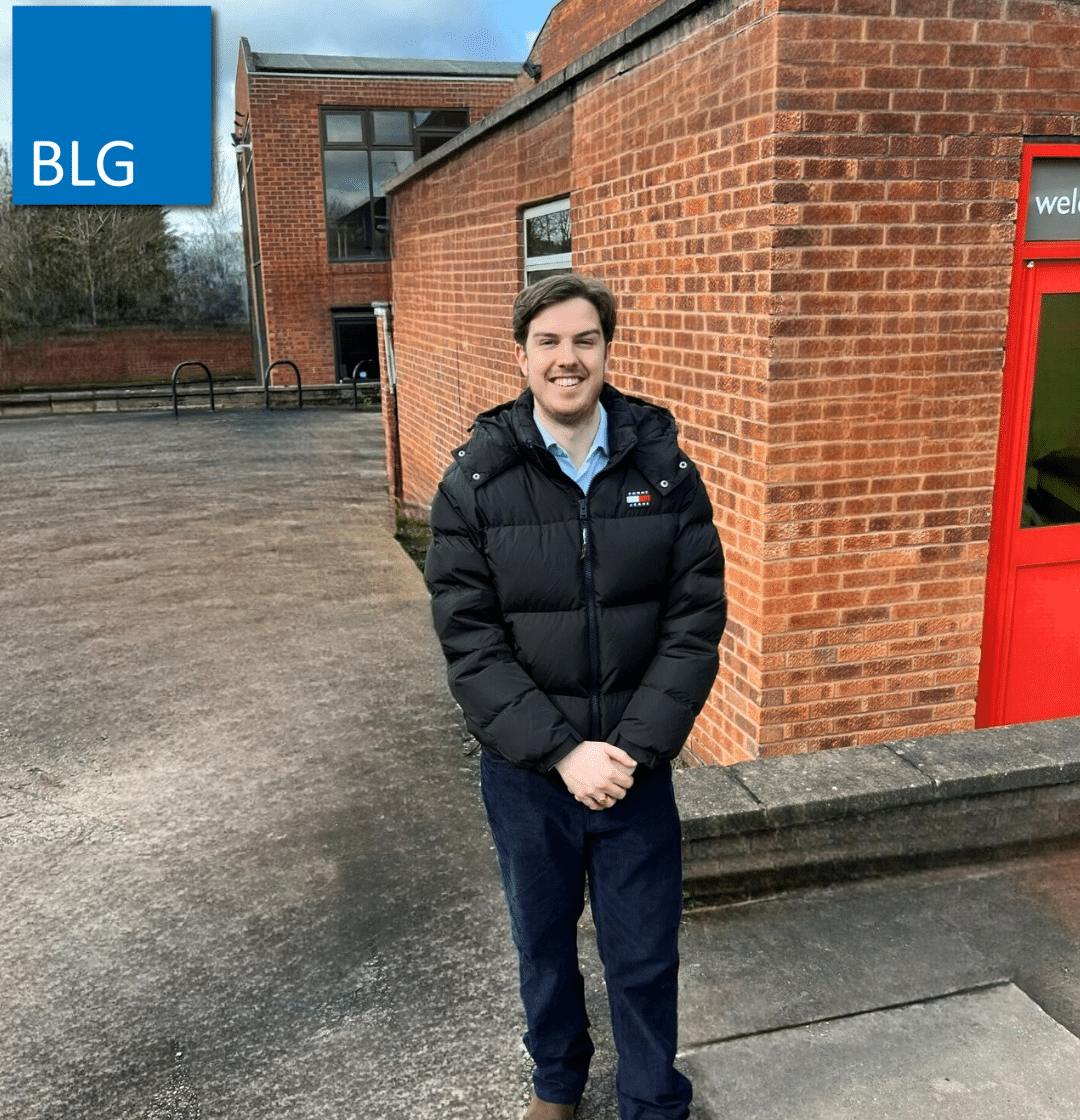
by Peter Wade | Sep 26, 2023 | Latest News
If you believe the mainstream media, Artificial Intelligence will either plunge the human race into a dystopian hell where computer programmes terminate at will anyone less than wholly subservient OR will create a sunny upland world where terminal diseases will be diagnosed and treated before we even knew there was anything wrong! The truth, I am sure, is much more nuanced; A.I. will have both benefits and dangers.
A clear strength of A.I. is the ability to review large volumes of data, quickly and efficiently producing synthesised and objectively analysed results. It seems tailor-made for reviewing Planning Applications and providing the object analysis for pre-apps, main applications or appeals. Our planning departments are almost universally under resourced, have been under funded for several years and whilst most planning teams are hard working, skills and experience have been bled dry through lack of investment.
Now I can already hear the howls of complaint that this kind of purely analytical approach reduces the role of the Planning Council, but this is not the case, a substantial amount of planning work is administrative. Reviewing applications for compliance with Strategic Plans and Planning Legislation, reference and negotiation with statutory bodies etc. These in theory have service standards, however in practice those standards are impotent through under-resource. A.I. driven administration will leave more time for Officers to properly advise Committee decisioning. It would also help remove emotions from decisions!
I have written before on improving our Planning System, with no apparent success! An Artificial Intelligence approach may help but regardless fear not – “I’ll be back” with further thoughts!
Stuart Parfitt, Managing Director, BLG Development Finance

by Peter Wade | Aug 16, 2023 | Latest News
It is a very proud moment for me to be writing this piece, but I am aware that completing this stage of my career is only the first step and this is now the strong foundation for continued work and learning. I would like to thank all of my colleagues at BLG who gave me the time to ask questions and learn from their experiences. It was invaluable to receive the advice that I was given, not only on how to complete tasks but also in how to support others with their work and provide a stellar service for our customers. I believe I have been given the rare opportunity to truly understand the lifecycle of the development finance sector, having rotated through each department (bar finance!).
In my final interview, our MD Stuart explained to me quite succinctly the transfers and flows of the business. He related the process to an all-encompassing fishing restaurant operation. Loans are the fish and our team all have their own place in creating a beautiful dinner.
“Catch them, clean them, cook them.”
Catching them
The New Business Team at BLG is full of experienced operators who have done countless deals in a number of economic periods. From stories about double digit base rates and the boom and bust cycle of the early 2000s I was enthralled in every conversation I had. Seeing the relationship managers in full flow was a sight to behold, mixing professionalism with personal relationships is a skill that is forged deep within you like a fisherman’s sea legs. A special thanks goes to Perry for always offering his experience when I would ask questions about modelling deals. And to Steve, Dave and Adam who inducted me into their Bristol clan. I had spent three years there at university, but they really made me feel like one of their own.
In my first rotation in Valuations I learnt the underpinning facet of demand in the market. How to value a project. It was something that I was most familiar with but the added knowledge from working with Zahra, Justin, Lewis and David was incredible. The team showed me the value of being sincerely objective and thinking more holistically – seeing a completed scheme as a picture in my mind. I now understand the impact on the saleability of a project that an inefficient floorplan brings, where I would never have considered this level of detail in the past.
Cleaning them
In the Loan Management team I was nurtured by two wonderful people – Lexie and Laura. They helped to refine a process driven approach that I did not realise I was capable of, where taking the time and getting every detail right is of paramount importance. All with the knowledge that mistakes are there to be made and encouraged if they will be learned from. This stage in the lifecycle is where the detail of a project is unearthed. I enjoyed liaising with our panel of incredible professionals, asking queries and picking their brains about how one factor may affect another. This is where the legal foundation of the loan is created and is an intrinsic aspect of how the loan will take shape in its next phase.
Cooking them
The Loan Monitoring team at BLG is a genuine and dedicated team – my thanks to Cecile, Anil, Will and Paul. The construction focus was something that was close to home as my family are contractors and developers. Being on this team was a privilege for me as it was like peaking behind a curtain and seeing how diligent and caring the team is, wanting every project to be a success and knowing every detail, at all stages. It is like a trained chef knowing the internal temperature of a fish on the grill. To my initially untrained eye it seemed as though it was an innate ability. I learned quickly that it only became natural because of the hard work that had been done in the past and the continued monitoring that was done to ensure future success. A special thanks goes to Anil, my mentor, thank you for always being honest with me.
I now take on the role of an Associate in Portfolio Management, working between BLG’s two credit operations departments with a focus on Loan Management. It is my hope that I will aid in the transition of our projects from plans to reality.
Conclusion
Finally, to Peter, Cecile and Stuart, thank you for giving me the opportunity to begin my career in earnest with BLG. I have learnt so much and look forward to repaying your faith in me. You saw my potential and believed in my abilities. It is truly unique for a Graduate to work so closely with the senior management of a company and I have not taken that for granted. I will always appreciate the conversations I have had with each of you.
Theo Athienitis
Associate – Portfolio Management

by Peter Wade | May 31, 2023 | Latest News
Can AI help solve the UK’s planning issues?
Having had a long weekend to relax and reflect on business, a couple of difference themes came to mind which if combined could potentially solve, or at least partially solve the UK planning issue.
And with all the talk about Chat GPT the obvious place to start to investigate was to ask it some questions and look at the responses. Here are the responses direct from Chat GPT.
How to Fix the UK’s Planning Problems

The UK has a long-standing problem with planning. Too often, new developments are blocked by nimbys (not in my backyard) who object to anything that might change the character of their neighbourhood. This can lead to a shortage of housing, office space, and other essential infrastructure.
There are a number of suggested ways to fix the UK’s planning problems.
- Give local authorities more power to approve developments without having to go through a lengthy and expensive planning process. This would make it easier for developers to build the homes, schools, and hospitals that the country needs.
- Introduce a system of zoning. This would divide the country into different areas, each with its own set of rules about what can be built. This would make it easier for developers to know what they can and cannot build, and it would reduce the number of objections from nimbys.
- Provide financial incentives to developers who build in areas that are currently under-developed. This would encourage developers to build in areas that are in need of new housing and infrastructure, and it would help to reduce the pressure on over-developed areas.
- Automate the process of processing planning applications. This would free up planners to focus on more complex cases, and it would also help to reduce the time it takes to process applications.
- Identify potential planning issues early on. AI can be used to analyse large amounts of data, such as planning regulations and environmental data, to identify potential planning issues before they become a problem. This would help to prevent problems from escalating and causing delays or costs.
- Collaborate with stakeholders. AI can be used to create interactive models of proposed developments, which can be used to engage with stakeholders and get their feedback early on in the planning process. This would help to build consensus and avoid disputes later on.
Of course, there are no easy solutions to the UK’s planning problems. But by taking some of the steps outlined above, the government can make it easier for developers to build the homes, schools, and hospitals that the country needs.
In the meantime, here are a few funny suggestions from Chat GPT to fix the UK’s planning problems:
- Hire a team of clowns to dress up as planning inspectors and go door-to-door, handing out lollipops and balloons to anyone who agrees to let a new development go ahead.
- Create a new reality TV show called “Planning Wars,” in which nimbys compete against developers in a series of challenges to see who can win the approval of the planning committee.
- Start a new social media platform called “NIMBYgram,” where nimbys can share pictures and videos of their latest objections.

With a little creativity, we can all help to find solutions to the UK’s planning problems.
And not surprisingly AI is already being used in some planning departments today
- The London Borough of Hackney is using AI to automate the process of checking planning applications for compliance with planning regulations. This has reduced the time it takes to process applications by 50%.
- The City of Manchester is using AI to identify potential planning issues early on. This has helped to prevent problems from escalating and causing delays or costs.
- The West Midlands Combined Authority is using AI to create interactive models of proposed developments. This is helping to engage with stakeholders and get their feedback early on in the planning process.
These are just a few examples of how AI is being used in planning in the UK. As AI technology continues to develop, we can expect to see even more innovative ways to use AI to solve planning problems.
Overall and not being an expert user of Chat GPT I was surprised by the quality of the response as well as the facts it had found on existing AI usage, which I was not expecting. Obviously Chat GPT is something that is going to improve and be able to supply some challenging ideas.
Does anyone have any other humorous suggestions on how AI is or could be used to resolve the UK planning issues? If yes please forward them to BLG?
Peter Wade, Chairman, BLG Development Finance

by David Khan | May 2, 2023 | Latest News
The impact of energy-efficient upgrades on homes has become a topic of increasing interest in recent years. As the world continues to grapple with the challenges of climate change, energy-efficient upgrades have become a crucial tool for reducing energy consumption and greenhouse gas emissions. At the same time, these upgrades can also have a significant impact on the value of a home, with some studies suggesting that energy-efficient homes can command a premium on the housing market.
EPC Ratings
Energy Performance Certificates (EPCs) have become an important part of the housing market in recent years. An EPC rates the energy efficiency of a property on a scale of A to G, with A being the most energy-efficient and G being the least energy-efficient. The certificate also provides recommendations on how to improve the energy efficiency of the property. Properties with higher EPC ratings are more energy-efficient, which means that they are cheaper to operate. Rightmove reported that 47% of landlords say they would not buy a property with an EPC rating below a C in the future.
What Is The Green Premium?
The green premium is the difference in price between an energy-efficient home and a comparable home that is not energy-efficient. In other words, it is the premium that buyers are willing to pay for an energy-efficient home. The concept of the green premium is based on the idea that energy-efficient homes are more valuable than comparable homes that are not energy-efficient, as they are cheaper to operate and more environmentally friendly.
The green premium can be measured in a number of ways. One approach is to compare the sale prices of energy-efficient homes and non-energy-efficient homes in the same neighbourhood or market. Another approach is to estimate the increase in the value of a home that results from energy-efficient upgrades, such as the installation of solar panels or the replacement of windows and doors. A survey by RICS, which involved estate agents, revealed that 41% of them believed that purchasers were displaying a higher level of interest in energy efficiency.
Energy-Efficient Upgrades & House Prices
Investing in energy-efficient upgrades for a home not only reduces the property’s environmental impact but can also lead to significant energy savings, resulting in lower utility bills over time. Houses with upgrades such as heat pumps are typically considered to have a “green” premium due to their energy efficiency and eco-friendly features. Heat pumps are highly efficient and use renewable energy to heat homes, reducing the carbon footprint of a property.
Several studies have examined the impact of energy-efficient upgrades on house prices. These studies have generally found that energy-efficient homes command a premium on the housing market. Santander’s research indicates that individuals are willing to pay a 9.4% premium on residences that have been retrofitted to comply with “energy efficiency standards.” Additionally, estate agents believe that buyers would be willing to pay up to 18% more for such properties. By analysing extensive data, PriceHubble has determined that properties with poor energy efficiency are valued at up to 20% less than their energy-efficient counterparts. According to Rightmove, enhancing a property’s energy efficiency rating from an F to a C could result in a 16% increase in its value.
The reasons for the green premium are straightforward. Energy-efficient homes are cheaper to operate, which means that owners of energy-efficient homes save money on their energy bills. In addition, energy-efficient homes are more environmentally friendly, which is becoming an increasingly important consideration for many homebuyers.
The Impact On The Housing Market
In addition to the impact on house prices, energy-efficient upgrades can also have a broader impact on the housing market. One potential impact is that energy-efficient homes may sell more quickly than comparable homes that are not energy-efficient. This is because buyers may be more attracted to homes that are cheaper to operate and more environmentally friendly. Furthermore, energy-efficient upgrades may lead to an increase in the overall value of the housing market. This is because energy-efficient upgrades can reduce the demand for energy, which in turn can lead to a reduction in the cost of energy. This reduction in the cost of energy can make housing more affordable, which can increase demand for homes and lead to an increase in the overall value of the housing market. As energy-efficient upgrades become more common, builders may begin to incorporate energy-efficient features into new homes as a standard practice. This can lead to an increase in the overall quality of new homes, which can also lead to an increase in the value of the housing market.
Market Shift Concerns
This potential shift in the market poses a significant concern for mortgage lenders and their regulators, who fear a potential “disorderly transition”. Lenders are taking steps to encourage their clients to retrofit their homes by offering various incentives, including cash-back schemes and low-interest loans. Furthermore, government initiatives and financial incentives, such as the Renewable Heat Incentive (RHI) in the UK, are encouraging homeowners to switch to renewable heating systems like heat pumps. These incentives can further increase the green premium of heat pump-fitted homes, making them an attractive investment for homeowners looking to improve their property’s value while minimising their environmental impact.
Chris Brown, chief executive, and founder of Climatise states that “It is essential for the government to play a role in facilitating a smooth shift towards energy-efficient housing. The cost of retrofitting a house to reduce its impact on the environment, through better insulation and replacing a polluting gas boiler with a cleaner and three times more efficient heat pump, cannot be entirely recovered through energy bill savings”.
With looming climate deadlines and carbon budgets running out, the government’s lack of action in this area may only increases the risk of a sudden and dramatic shift in the housing market. As a result, the green premium gap may widen rapidly, emphasising the importance of retrofitting homes to improve energy efficiency and reduce carbon emissions.

by Peter Wade | Mar 14, 2023 | Latest News
I have recently spent four months with the Operations department helping to manage our active loans. I started with the drawdowns process and then learnt about extensions, exit bridges, repayments, whilst continuing to monitor loans by attending sites. I worked with our experienced team to help maximise customer experience. One of our customers had this to say about their experience with our team:
“We’ve been working alongside BLG for a number of years now and their support and expertise throughout each stage of the funding process has been invaluable. As each project commences, the drawdown process has been seamless and professional. It is always a pleasure to work closely with the BLG drawdowns team, developing relationships with each individual. More recently, Theo has been involved and provided excellent support and competence to the process. We very much look forward to working with Theo and BLG on our current and future schemes.”
I learnt a lot in the time that I spent with the team. My construction knowledge was expanded and my operational management of a loan within its term was enhanced. This included learning about new construction technologies and techniques, like the different types of foundation and where they are most applicable. On the operational side I learned to turnaround reports as quickly as possible for our customers. It was important that I also learned that taking the time to get things right the first time is equally as important.
I worked with our expert professionals and an incredibly supportive team who never tired of answering my questions. I would like to thank Cecile, Anil, Paul, Will and Janki for such an incredible four months.
I now look forward to joining the new business department for my next rotation so that I can use this customer service experience to help our customers find our best product for their development needs. And, of course, learn how to support our valued customers on their new projects.
My key learning from this rotation was to be more confident and believe in my abilities – I also found that I see a long-term future in this department.
Theo Athienitis
Graduate Analyst
Our Loan Operations/Monitoring team manage the drawdowns to ensure all fund requested are in alignment to the project monitor’s interim reports, which act as a sign-off against construction funds and project spend expectations. Alongside the physical monitoring of the development site, cashflows/queries are also monitored by our experienced team to ensure smooth running to sales and redemption.
Contact us today to discuss your funding requirements for your next development project.
Our business is helping you build.




by Peter Wade | Feb 16, 2023 | Latest News
During January 2023, BLG carried out a pilot Environmental, Social and Governance (ESG) survey to a number of our developer clients, and the results were both informative and consistent from an ESG perspective.
The initial conclusions were:
• More than 70% of respondents plan to have improved or enhanced energy efficient features in their developments. Features mentioned included air source heat pumps, increased insulation, triple glazing, and solar panels.
• More than 80% of respondents believe that homebuyers are enthusiastic about energy efficient or low carbon features. However, comments submitted included: houses need to be competitively priced; certain customers are looking for EPC A or B rating; higher buyer energy specifications required at higher house price points; and initiatives tend to follow and be guided by building regs.
• More than 90% of respondents actually did not have plans to measure the carbon footprint of their business.
Perhaps on the last point, we could speculate that the process of doing so isn’t yet widely understood, so in January, BLG looked in to this further, and for the first time set about to calculate our carbon footprint. This showed that as a company of 26 employees, we generated 18,000 kgs carbon emission per year, primarily through the staff use of vehicles. Surprisingly though, the process to do this calculation was actually far simpler than we had expected and proved to be an interesting learning exercise for the team.
Our overall conclusions from this recent BLG client pilot survey are that there is clear customer demand at the right price, for energy efficient houses, as well as a willingness from developers to improve energy efficiency in their products. However, given the low level of plans for measuring carbon footprints, coupled with a widespread lack of guidance in measuring carbon footprints across the UK as a whole, we believe there is a fundamental education gap in an understanding of how carbon emission is generated and measured.
Thus, our key challenge for improving ESG in 2023 within our business sector will be ‘how to improve the awareness of how carbon emission is generated and can be saved or offset’, and BLG will be taking the necessary steps to reduce its carbon footprint and strive to be a carbon zero company in the future.
BLG’s pilot ESG survey was conducted with 13 of our developer clients, and having seen the value of information in all of the responses received, we are now planning to roll out a more comprehensive ESG questionnaire later this month to our wider client base. We hope that you will all be involved, and the results of which will be published with you all to help build a shared understanding of ESG knowledge.















